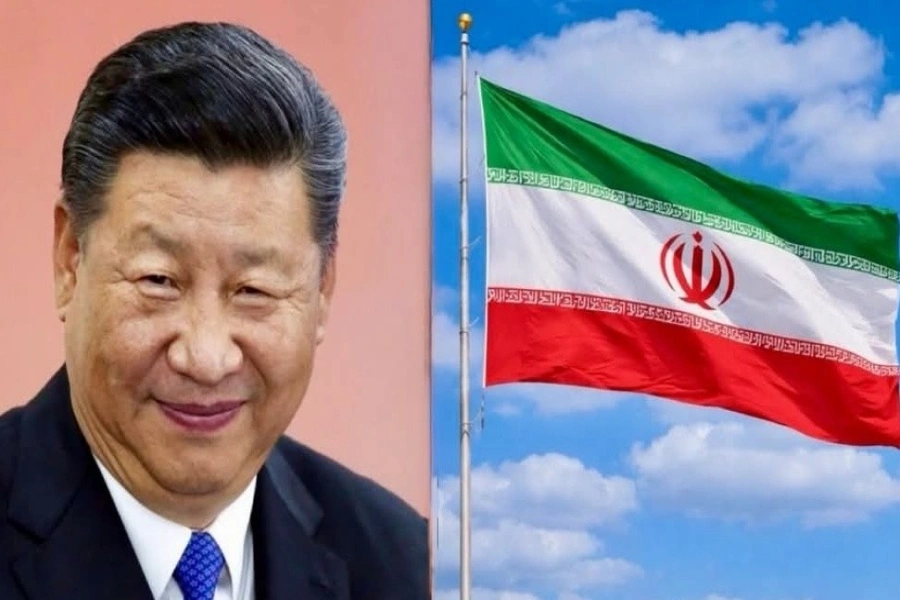Shackles of conformism are so comforting that it takes real courage to break out of its shiny chains. Exodus abroad is an escape, not liberty
Perhaps it was in the early-noughties. Renowned anthropologist Marie Lecomte-Tilouine was travelling through mid-western mountains. Those were the days of the Maoist insurgency when nobody passed through the so-called ‘base area’ of watchful guerillas. Marie had an advantage. She spoke fluent Nepali, was comfortable in a dialect of Magar language and considered the entire locality as her Maiti—the parental land of a happily married woman in Nepal where she is at home regardless of its material conditions.
The security forces as well as insurgents would quiz Marie and then let her pass. With little at stake in the internal politics of Nepal, the French were considered harmless by warring parties. Upon her return to Kathmandu, she narrated her conversations with Maoist insurgents to a fellow writer. She seemed genuinely surprised that youngsters in the back of beyond knew so much about the storming of the Bastille, the radicalism of Jacobins, the failure of the Paris Commune and the enduring significance of French Revolution upon world history.
The French have fascinated the world for ages. From philosophy to fine arts and from industry to haute cuisine and exquisite wines, the French have never ceased from endeavoring to extend boundaries of excellence. For the French team, the FIFA World Cup 2018 has more been a forum for the display of diversity than a test of skills. Little wonder, the French Embassy in Kathmandu marked this year’s Bastille Day with gaiety even as their traditional rivals from across the Channel were being trounced in St Petersburg by gritty Belgians.
At the Bastille Day Reception on July 14, Vice-President Nanda Bahadur Pun—when he commanded Maoist guerillas, his middle-name was less forbidding Kishor—was the Chief Guest of the evening where his role was limited to proposing a toast to the outgoing ambassador. Dressed in de rigueur Labeda-Suruwal ensemble in the sultry heat, he looked distinctly uncomfortable. Once a formidable legal eagle, an eloquent parliamentarian, and then the Chairman of the Constituent Assembly, Subash Chandra Nembang appeared equally lost in the crowd and cut a sorry figure.
Minimum wages to journalists to be implemented: chair Aryal

It’s not just the ruling party where Janjati politicos have been pushed to the margins. The veteran Tharu politico from Morang-Sunsari Bijay Kumar Gachhadar was an influential leader of Nepali Congress who chose to align with its breakaway faction once the creeping royal-military coup began in May 2002 with the dissolution of the parliament. The group reunited with the parent party, the prodigal returned home, only to join the Madhesi Janadhikar Forum soon afterwards.
Gachhadar broke away from Madhesi Janadhikar Forum to form a self-centered political outfit. Due to his complicity in the 16-Point Conspiracy that heralded the reemergence of regressive politics, he lost whatever respect he had in the Adibasi and Madhesi—abbreviated as Aam, the Nepali term for commoners—community. In order to win an election, he had no other option than re-joining the party that he had left twice in the past. Though back in the NC-fold again, his role is now limited to that of being a Tharu poster-boy of politics.
Internal disarray
Along with Chieftain Khadga Prasad Sharma Oli and disgraced-Maoist Pushpa Kamal Dahal, Chairman Upendra Yadav of Sanghiya Samajbadi Forum is one of the three sharpest politicians around capable of making best use of even a very bad situation. Chairman Yadav towers over all others in the politics of the Aam community. However, Janjati politicos in his party are like planets that orbit the star and bask in reflected glory. In comparison, Mahanth Thakur of Rashtriya Janata Party Nepal has put his impeccable reputation on the line to seek the release and rehabilitation of popularly-elected Tharu leader Resham Chaudhary.
Despite forming nearly one-third of the electorate and having served the Gorkhali Empire since its inception, why is it that Janjatis repeatedly fail to have much impact upon public life in Nepal? Even if one were to leave Thakalis and Newars—two Janjati groups that routinely outshine Khas stalwarts in everything except politics—aside, there has never been a dearth of promising academics, intellectuals or activists in the Adibasi fold. Harka Gurung did intellectuals proud. Seira Tamang continues to push boundaries of scholarship. Bairagi Kainla is a poet extraordinaire. Om Gurung, Mukta Singh Tamang, Dambar Chemjong and Janak Rai are leading academics in Humanities. Like diamonds, they shine with brilliance but without giving much heat or light to the Aam politics and society.
It’s said that most complex issues can be addressed with simple answers. Late Gore Bahadur Khapangi Magar was one of the early pioneers of Janjati politics. Born and brought in the milieu of Mahottari, he failed to realize that blood was thicker than water and continued to champion the cause of monarchy—the Crown of Khas (Khas-Aryas) community in not just metaphorical but literal terms—rather than make common cause with fellow Madhesis. Anthropologist Dor Bahadur Bista tried to establish that the Shahs were of the Magar stock and many Janjatis bought that proposition lock, stock and barrel. It’s much easier to co-opt a community with grandiose memories. It was the same strategy that had been used to lure promising Newar activists into the Gorkhali fold earlier.
Perhaps exclusion of Madhesi Janjatis such as Dhanuks, Kurmis, Kewats, Tharus, Danuwars, Dhimals and Rajbanshis from the SeTaMaGuRaLi (Serpas, Tamangs, Magars, Rais and Limbus) conceptualization was intentional to keep non-mountainous groups out of the ‘nationalistic’ imagination. Identification of Newars and Thakalis with HAMNS (Hindu, Aryan, Male, Nepali-Speakers) hegemony kept them out despite their location. The SeTaMaGuRaLi slogan may have been useful in awakening a section of Janjati population but it ended up proving the point that Adibasi was a mere category and was incapable of being imagined as a community with shared interests and common destiny.
By the mid-1990s, Khapangi’s ridicule that Nepal was a Bahunjatiya (Bahun hegemony) rather than Bahujatiya (multi-national) country had lost its appeal. Maoists emerged on the scene with the promise of autonomy for Janjatis and the struggle for identity and dignity was lost to the illusions of communism. Maoists reneged on the question of autonomy and disillusioned Janjatis once again began to queue up at the exit door. The Janaijatis—the twice-born in the Hindu hierarchy of castes—of mid-mountains renewed their control over the country through a controversial constitution fast-tracked in the face of stiff opposition from Madhesis. Most Janjatis consented to the statute with resounding silence.
External dimension
Henry Kissinger is reputed to have quipped that while it was dangerous to be the enemy of United States of America, to be its friend was fatal. That’s perhaps true of all big powers; the most recent example being the fate of Madhesis at the hands of Indians during the Third Madhesh Uprising. Never on a very high ground, Janjati politics started to go downhill once the DFID of the UK government decided to extend financial assistance to the Adibasi Janjati Mahasangh. If it’s possible to kill a movement with kindness, foreign funding did just that to Janjati politics.
The response was quick and sharp. Mono-ethnic regimes of Scandinavia rallied behind the ethnocentric Khas elite of the new republic. The progressive agenda of a welfare state was an easy sell even though the idea of equality among peoples of unequal socio-cultural status was a roundabout way of strengthening the status quo. The Japanese and the Germans stood up for cultural conservatism in the name of political liberalism. Trumpards deservedly get a bad press, but the Secretary of State Hillary Clinton under President Barack Obama between 2009 and 2013 wasn’t very friendly towards emergent identities and politics of dignity.
The Indians wanted to teach Maoists a lesson. The Chinese wanted stability at all cost in Kathmandu. When the White Shirts—urban libertarians comparable to the Yellow Shirts of Bangkok—assembled on Durbar Marg in May 2012, it was clear that the countdown of dignity politics had begun. For Madhesis and Janjatis, the mourning that commenced with the demise of the first Constituent Assembly of the country continues.
Janjati activists often wonder whether anything can be done now to salvage the movement. Odds appear insurmountable. Few things, however, can still be done to save one’s sanity: See something, say something, and do something. The relevance of educating, organizing, building alliances and agitating for one’s dignity is also enduring. Shackles of conformism are so comforting that it takes real courage to break out of its shiny chains. Exodus abroad is an escape, not liberty.





































